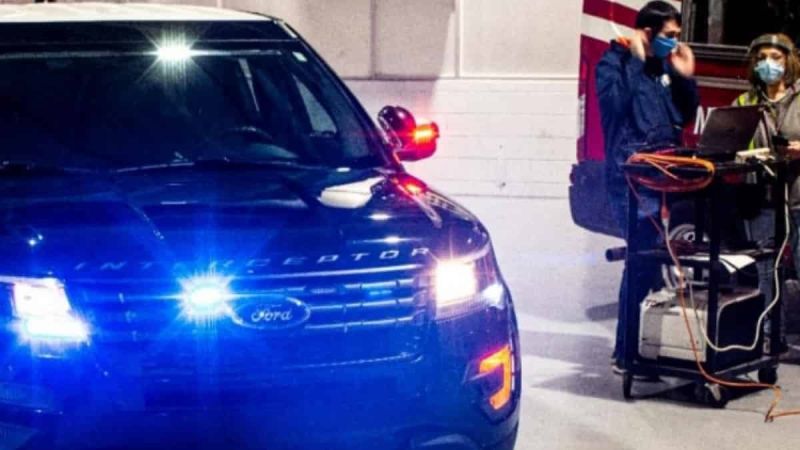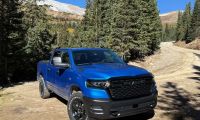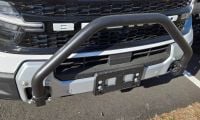"First responders are on the front lines protecting all of us. They are exposed to the [corona] virus and are in dire need of protective measures," said Hau Thai-Tang, Ford chief product development and purchasing officer. "We looked at what's in our arsenal and how we could step up to help."
Ford Examines Police Interceptors
To meet that need, Ford engineers looked closely at 2013-2019 Police Interceptor Utility vehicles and found a way to protect police officers from the coronavirus by using its software. Indeed, the solution the engineering team found was immediately available to the utility vehicles.
Ford has designed a software enhancement that will enable police departments from coast to coast to ease the threat from the COVID-19 virus.
Taking advantage of smart vehicle technology, Ford's software team designed an enhancement that takes advantage of the vehicle's powertrain and heat control systems into a virus-neutralizing system.
The beauty of this system is its simplicity. The software changes turn the interior of the Police Interceptor into an oven that bakes the vehicle's interior until the virus is gone.
Ford Finds Heat Is The Answer
To disinfect the interior, the engineering team had to make sure the system could handle the system stresses. To beat COVID-19, the engineering team pushed interior temps to the far side of 133° Fahrenheit for 15 minutes. The 15-minute heat-bath, hotter than Death Valley during the summer, was perfect for disinfecting for the Police Interceptor.
Ford worked with Ohio State University to determine the temperature and duration needed to help deactivate the COVID-19 virus.
"Our studies with Ford Motor Company indicate that exposing coronaviruses to temperatures of 56° Celsius, or 132.8° Fahrenheit, for 15 minutes reduces the viral concentration by greater than 99 percent on interior surfaces and materials used inside Police Interceptor Utility vehicles," said Jeff Jahnes and Jesse Kwiek, laboratory supervisors at The Ohio State University department of microbiology.
Police can monitor the process in different ways. The software will flash the hazard lights and taillights in a pre-set pattern when the test begins. When the test is over, the lights will show completion. The vehicle's gauge cluster will also indicate the progress. The cool-down brings the temperature down from its highest points.
Sanitizing Follows CDC Guidelines
Police can use this process regularly to sanitize their vehicles. When used in conjunction with the sanitization guidelines approved by the Centers for Disease Control and Prevention (CDC), flooding the passenger compartment with superheated air can reach many areas that manual disinfecting procedures often miss. Heat easily seeps into deep crevices and other hard-to-reach areas, often missed by hand sanitizing.
Ford conducted trials in vehicles owned by the New York City Police Department, Los Angeles Police Department, Michigan State Police, Massachusetts State Police, Boardman Township Police Department in Ohio, and Seminole County Sheriff's Office in Florida.
Large departments with service centers can install the software solution using their diagnostic service tools. Other fleets can work with their local dealers to install the software for 2013-19 Police Interceptor Utility vehicles.
Marc Stern has been an auto writer since 1971. It was a position that filled two boyhood dreams: One was that I would write, and two that I write about cars. When I took over as my newspaper's auto editor, I began a 32-year career as an automotive columnist. There isn't much on four wheels that I haven't driven or reviewed. My work has appeared in Popular Mechanics, Mechanix Illustrated, AutoWeek, SuperStock, Trailer Life, Old Cars Weekly, Special Interest Autos, and others. Today, I am the Ford F150 reporter for Torque News. I write how-to and help columns for online sites such as Fixya.com and others. You can follow me on Twitter or Facebook. Most of Marc's stories can be found at Torque News Ford coverage. Check back again and search for Torque News Ford F-150 news for more F-150 truck news coverage.
Set Torque News as Preferred Source on Google











